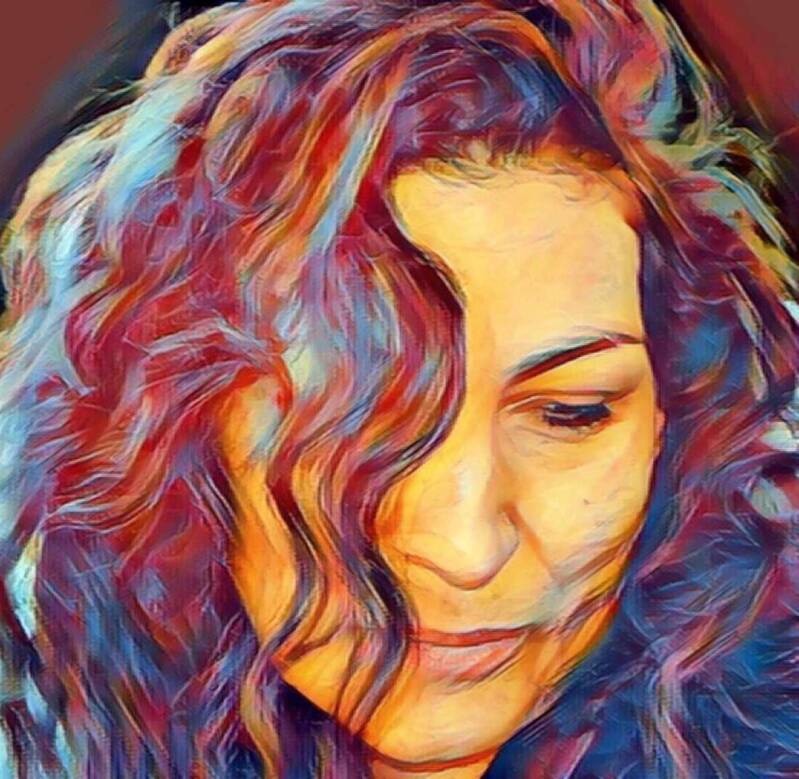
JC Spark: Curly Thoughts about...the art of curly thinking. What do I mean by curly thoughts? It is the term for a certain way of thinking that has developed over the years. The term, not the way of thinking, I always had it and I certainly do not have the privilege of having invented it.
My wife calls this way of thinking “curly thoughts” because, like my hair, they spiral out of my head and into the world, all curly, confusing and unstoppable.
So, here goes: curtly thinking on.
Of course, I don't have to allow this! I know one can straighten both hair and thoughts. And there were times in my life when I tried to do just that. Really. Seriously.
Why? Because they irritated other people so much. And even if wise ones like Garfield say, “If you can't beat them, confuse them” – that wasn't what I wanted. I wanted people to like me. And what people don't like at all is being irritated, it makes them insecure, and nobody likes that... or do they?
If I feel insecure, it means I don't know something, don't understand something. Something I was convinced of is being questioned. Questions are the heartbeat of curly thoughts; without questions, they die.
Now, as with everything in life, curly thoughts are not always suitable for everyone. If you constantly produce curly thoughts when you think about your next meal, you run the risk of going to bed hungry – and perhaps alone.
But the mind can also go hungry, and the mind needs nourishment too. And for the mind, too, there is a wide range of options, from fast food to house brands, haute cuisine or organic. And just like food for the body, food for the mind is also prepared.
Sounds weird? No, just a little curly perhaps. “Preparing” a thought can mean wrapping it in an advertising slogan, a book title, a motto, a saying or, for the brave, a question.
Interestingly, we speak of the big questions of life, not of the big answers... unless it is about religion or politics – although I would question that and answers as such here (pun intended) – but not in these thoughts.
What are big questions?
Questions like: What is love? What is justice? What is beauty? What is the meaning of life?
What they all have in common is that they are simple questions to which there may be as many answers as there are beings who have ever thought about them – and none at all.
We have been asking questions since we first opened our eyes and the world elicited a universal “Huh?” from us – followed by the cry of longing for answers, for orientation, for knowledge, for certainty, for security.
A trait that can be both life-saving and deadly at the same time. Because questions are dangerous – as they can lead to answers – or to further questions – or to us starving in front of the proverbially filled mental refrigerator because we cannot decide which answer is the right one.
They are so dangerous that we need solutions to mentally survive. Because there must be the right answer if we only look long enough, more thoroughly, more seriously...
Our truths help us to decide. To use the seemingly harmless analogy of eating, it's like choosing between an apple and a chocolate bar. Our truths tell us that an apple is healthier for the body. But we “know” that the sugar in the chocolate bar gives us a kick.
And we are once again faced with a question. So we need a “stronger” truth, which is either personal, such as “the health of my body is my priority” or is generally valid, such as “chocolate is harmful”. Of course, this all depends on the time and culture in which we live. And once we have found one of these truths, these answers, our lives immediately feel better, or at least safer.
But because people are people, sooner or later someone will come along who explains why everything is completely different and challenges our truth with their own.
At this point, the question may arise:
“Okay, but what's the point? What are these curly thoughts about? What are you getting at?”
“Yes, exactly.”
“That's not an answer.”
“Yes and no.”
“What are you trying to say?”
“What do you think?”
And weird thinking out - as far as possible.
Confusing, isn't it? 😉
Kommentar hinzufügen
Kommentare